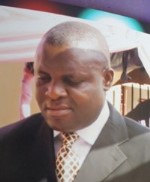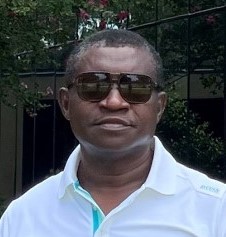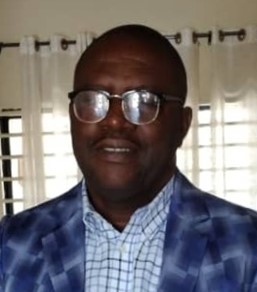in Sub-Saharan Africa:
Challenges and Opportunities
FEATURED PAPER
By Reuben Okereke, PhDi, Emmanuel Ukanwaii and Chukwuemeka Nwosu, PhDiii
i Department of Quantity Surveying, Imo State University, Owerri, Imo State, Nigeria
ii Department of Architecture, Imo State University, Owerri, Nigeria
iii Department of Quantity Surveying, Federal Polytechnic, Nekede, Owerri, Nigeria
ABSTRACT
The demand for Energy in most Sub-Saharan African (SSA) countries has become unimaginable despite its high potentials for natural and renewable resources. The deficit has impeded the regions’ economic growth and sustainability. The continent of Africa is endowed with abundant energy resources much of which have not been exploited as a result of numerous challenges. This study reviewed the Challenges and Opportunities facing Sub-Saharan Africa in attaining self-reliant and sustainable energy. The method adopted is a desk research method. It is a literature based conceptual work. The opportunities associated with renewable energy resources includes: Energy Security, Energy Access, Social and Economic development, Climate Change Mitigation, and reduction of environmental and health impacts while the challenges include Market failures, lack of information, access to raw materials for future renewable resource deployment, and our daily carbon footprint. The study focused on solar renewable energy resources. Result shows that SSA region can attain self reliant and sustainable energy through the development of renewable energy especially the solar energy. It concluded that attaining self-reliance in energy with highly energy use appliances can be achieved. It therefore recommended that SSA governments should as a matter of urgency rise up and engage in advocacy programmes to create awareness on the enormous potentials of renewable energy and energy saving appliances in the sub-region.
Keywords: Attaining, Self-reliant, Sustainable energy, Sub-Saharan Africa, Opportunities and Challenges
INTRODUCTION
Energy is fundamental to human welfare. Energy is the property of a system that enables it to do work. That is, work cannot be done without having energy; energy is expended to do work (Babatunde, 2007). In other words, the amount of work done is determined by the amount of energy put in. When the supply of energy is exhausted in a system, the system stops working. For example, when fuel is exhausted in a vehicle, the vehicle stops moving.
Sub-Saharan Africa (SSA) is a region with abundant sources of energy resources such as, wind power, hydro power, bio-mass and solar power but it energy need is on the increase and her increasing population is not balanced by adequate energy development programme. The present system of sole dependence on hydro-power sources for energy supply is inadequate, as this is controlled by factors such as the seasonality in the levels of water at the different hydro-power stations (Karekezi, &Kithyoma, 2002).
Access to clean modern energy services is an enormous challenge facing the Sub-Saharan Africa (SSA) because energy is fundamental for socioeconomic development and poverty eradication. Today, 60% to 70% of the Nigerian population does not have access to electricity (Oyedepo, 2012) the same goes to other countries with the region. The current challenges facing SSA include lack of access to energy. For instance, electricity access in 47 countries that are in sub-Saharan Africa (SSA), with the exception of South Africa, do not generation energy capacity equal to Argentina energy alone (US EIA, 2011). Furthermore, a quarter of its generation capacity lacks adequate maintenance and has outdated equipment (US EIA, 2011). Evidently, the cost of generating electricity in SSA adds up to a high US$0.18/kWh when compared to South Asia-US$0.04/kWh and East Asia-US$0.07/kWh (AfDB, 2010). So, SSA possess only 24% share towards electricity access which is the lowest globally (Eberhard et al., 2008).
It is of different kinds and forms with broad division under the renewable and non-renewable energy sources. The non-renewable sources have been the most used and produce harmful emissions, thereby making it environmentally unfriendly (Nguimfack-Ndongmo, et al 2019).
There is no doubt that the present energy crisis afflicting SSA will persist unless the government diversifies the energy sources in domestic, commercial, and industrial sectors and adopts new available technologies to reduce energy wastages and to save cost.
This paper looks on ways of attaining self-reliant and sustainable energy in Sub-Saharan Africa: Challenges and Opportunities. The main questions posed by this study are: What are the challenges of sustainable energy provision in SSA? What are the opportunities for sustainable energy in SSA? Therefore, the associated objectives of this study are: to analyse the challenges of sustainable energy provision in SSA and to determine the opportunities in sustainable energy in SSA.
More…
To read entire paper, click here
How to cite this paper: Okereke, R., Ukanwa, E., Nwosu, C. (2022). Attaining Self-Reliant and Sustainable Energy in Sub-Saharan Africa: Challenges and Opportunities; PM World Journal, Vol. XI, Issue XI, November. Available online at https://pmworldlibrary.net/wp-content/uploads/2022/11/pmwj123-Nov2022-Okereke-Ukanwa-Nwosu-attaining-self-reliant-and-sustainable-energy.pdf
About the Authors

Dr. Reuben A. Okereke
Owerri, Nigeria
![]()
Q.S. Dr. Reuben A. Okereke, PhD QS & Sust. Dev., MSc. Const. Mgt., MSc. Env. Res. Mgt., P.Dip. Proj. Mgt., H.Dip. QS, BSc. Const. Mgt., FRQS, FIIA, ACIArb, CIPM, MAACEI., is a multi-talented and erudite scholar. A versatile professional with academic qualifications in Quantity Surveying, Project Management, Construction Management and Environmental Resource Management. His Quantity Surveying professional experience of almost three decades spans through his employment with consultancy and construction firms in Lagos, Nigeria, work as Project Manager in the Bank for eight years, services as in-house consultant Quantity Surveyor for several years for the Imo State University Owerri, Nigeria, experience as Consultant Quantity Surveyor in private practice as well as several years of teaching in both the University and Polytechnic. He is currently serving his second term as the head of department of Quantity Surveying, Imo State University, Owerri, Nigeria. He can be contacted at raphicaben2013@gmail.com.

Arc Emmanuel Obinna Ukanwa
Owerri, Nigeria
![]()
Arc Emmanuel Obinna Ukanwa, B.Sc. Arch, M Sc Arch, Mnia, Maarches, is a consultant architect and an academic. A Senior Lecturer in the Department of Architecture, Imo State University, Owerri, Nigeria. Former, Head of the department of Architecture, Imo State University, Owerri, Nigeria. Member, Nigeria Institute of Architects, Member, Architects’ Registration Council of Nigeria, Member, Association of Architectural Educators in Nigeria. Consultant architect to Imo State Government on MDGs/CGS projects and Consultant architect to the development of Primary Healthcare Centres in 774 LGAs in Nigeria. Has vast experience in design and construction of projects belonging to private and public sectors. He can be contacted at: emmanuelukanwa6@gmail.com

Chukwuemeka. S. Nwosu, PhD
Owerri, Nigeria
![]()
Chukwuemeka. S. Nwosu, PhD is a well-rounded academic and professional Quantity Surveyor, with over two decades of teaching and practice experience. He holds a Diploma in Quantity Surveying, Bachelor of Science (Bsc) honours, Quantity Surveying, Master of Science (Msc), Construction Management, Master of Business Administration (MBA) Finance and Doctor of Philosophy (PhD) Environmental Management (Infrastructural Development Control). He is a registered Quantity Surveyor with Quantity Surveyors Registration Board of Nigeria (QSRBN) and Fellow of the Nigerian Institute of Quantity Surveyors. He is also a member of the Nigerian Institute of Quantity Surveyors Examinations Board. Qs. Dr. Nwosu is a chief lecturer at Federal Polytechnic, Nekede, Owerri and Adjunct Associate Professor at Imo State University, Owerri, Nigeria. Dr. Nwosu can be contacted at snwosu@fpn.edu.ng









